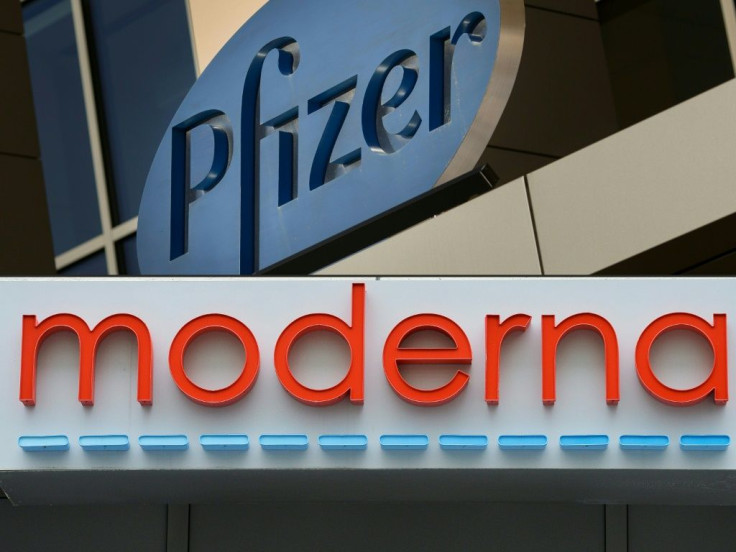Moderna vs. Pfizer: How The COVID-19 Vaccines Compare
The Moderna and Pfizer vaccines are very similar when comparing their genetic materials, but the two produced varying results in their respective clinical trials.
Like the Pfizer/BioNTech vaccine, which was revealed last week to be 90% effective against COVID-19, the Moderna vaccine is based on introducing genetic material, known as mRNA, into the human body.
When mRNA is introduced to the body, the protein-making machinery within human cells produces spike proteins. These proteins are displayed on the outside of the cells, triggering the body’s immune response, Stat News reported.
Both the Moderna and the Pfizer vaccines involve two doses, spaced a few weeks apart.
Moderna's vaccine tested at 94.5% effective against coronavirus, according to early data released by the company Monday.
"These are obviously very exciting results," Dr. Anthony Fauci, the nation's top infectious disease doctor, told CNN. "It's just as good as it gets... 94.5% is truly outstanding."
In Moderna's trial, 15,000 study participants were given a placebo injection. Over 90% of the individuals who received the placebo developed COVID-19. The other 15,000 participants were given the potential vaccine, and only five participants contracted the virus. The five people who contracted the virus did not become severely ill.
In the press release, Moderna added that its vaccine did not have any serious side effects. Several people who received the vaccine only experienced body aches and headaches.
As for Pfizer, its vaccine trial included 43,538 participants and no serious safety concerns were reported during the trials. A total of 94 confirmed cases of COVID-19 were evaluated during the trial, with noninfected patients split between receiving the vaccine and a placebo.
An efficacy rate of over 90% was achieved seven days after the second dose was administered to participants, who had no evidence of prior COVID-19 infection. Data showed that COVID-19 protection occurred 28 days after the initial vaccine through a two-dose inoculation schedule.

© Copyright IBTimes 2024. All rights reserved.





















